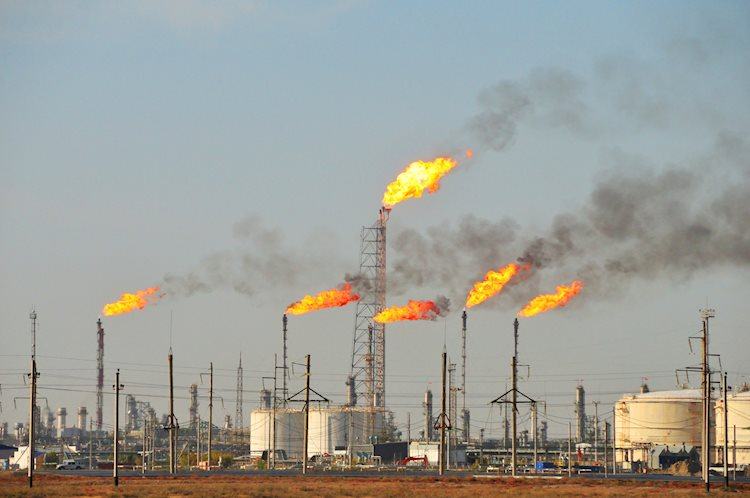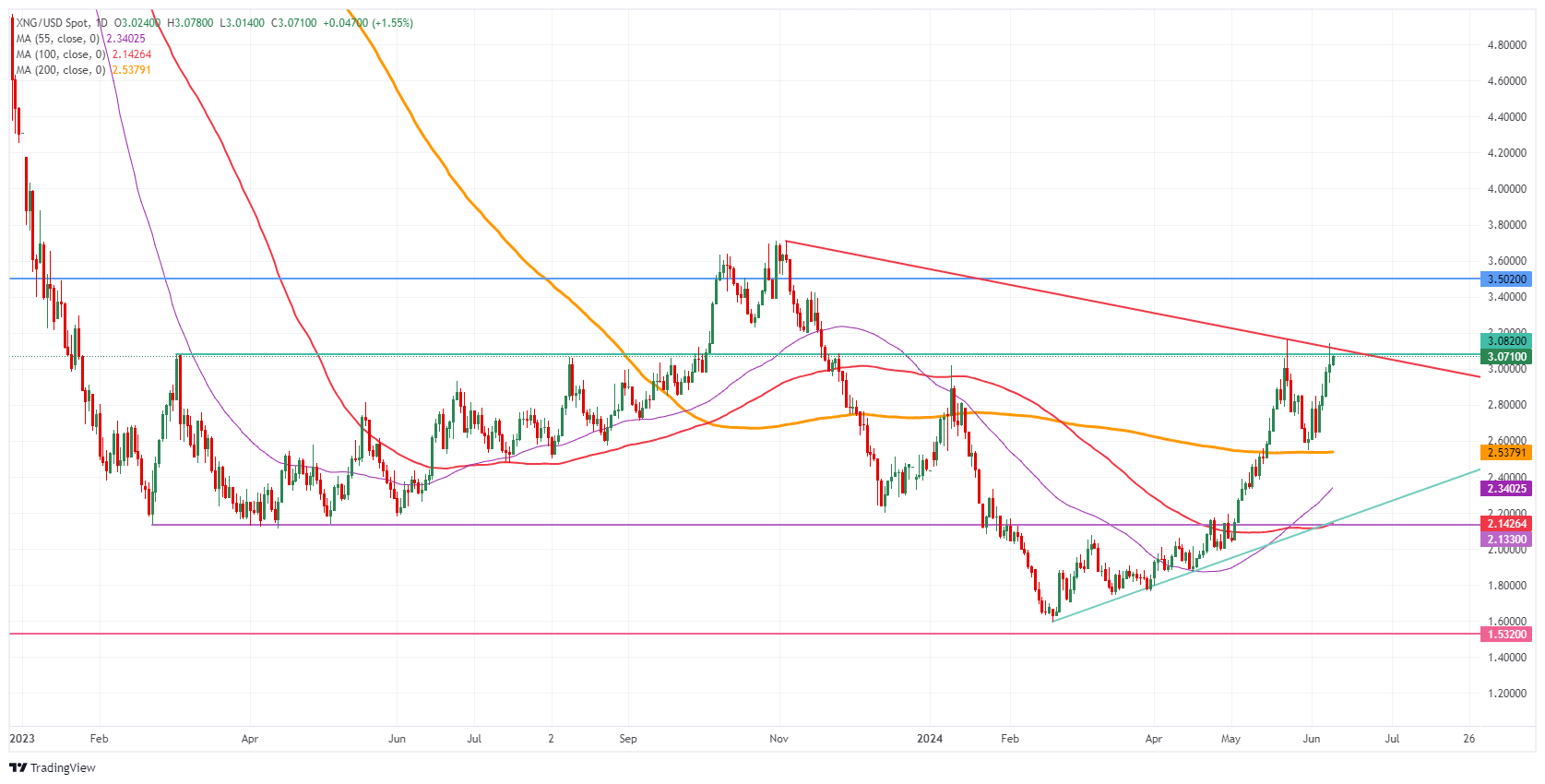- Natural Gas price shows no signs of fatigue and resides near the high of 2024.
- Chevron’s Wheatstone LNG plant ountage causes supply tightening.
- The US Dollar Index resides near 105.00 ahead of Wednesday’s CPI and Fed meeting.
Natural Gas price (XNG/USD) trades higher on Tuesday, nearing a fresh yearly high, as Europe discusses ways of keeping flows via Ukraine alive next year and amid increasing supply from Norway. While Norwegian flows are at their highest levels since April, Europe is looking to talk to Ukraine and Russia to keep the Gas flowing. This opens up a sore wound for Europe after it pledged to ban Russian gas. With big uncertainties now over whether Europe can even become independent from Russian Gas, prices are rallying as traders foresee that Europe will need to buy more Gas if Russia or Ukraine refuse to strike a deal.
Meanwhile, the US Dollar Index (DXY), which tracks the Greenback’s value against six major currencies, is lingering above 105.00 in a very calm start of the week. The DXY was moving a bit on Monday on the back of the outcome from the European elections, though the move has eased now. It looks like traders will await the main events on Wednesday, with the Consumer Price Index (CPI) release and the US Federal Reserve’s (Fed) rate decision and dot plot.
Natural Gas is trading at $3.05 per MMBtu at the time of writing.
Natural Gas news and market movers: Supply issues for Europe
- Bloomberg reports that Chevron has halted all gas production at its Wheatstone offshore facility in Australia to complete repairs to the fuel system. Production was already suspended on Monday.
- Ukraine’s state-run Gas company Naftogaz says it sees substantial interest from Europe to tap its Gas reserves and facilities, Reuters reports.
- Europe is considering bypassing Ukraine should Kyiv not want to cooperate with a European-Russian Gas deal. One option under consideration is to divert gas flows from Ukraine to Azerbaijan into Europe, Bloomberg reports.
Natural Gas Technical Analysis: Outage means issues
Natural Gas trades higher, printing a fifth green daily candle in a row. Though more upside might be granted, the current level is a heavy cap which will not be easy to overcome. Should this $3.07-$3.10 barrier snap, a quick run up to $3.50 could be in the cards.
The pivotal level near $3.07 (high from March 6, 2023) remains key as prices failed to post a daily close above it. Add the red descending trend line coming in at $3.12, which would slam down any attempts to jump higher. Further up, the fresh year-to-date high at $3.16 is the level to beat.
On the downside, the 200-day Simple Moving Average (SMA) acts as the first support near $2.53. Should that support area fail to hold, the next target could be the pivotal level near $2.14, with interim support by the 55-day SMA near $2.34. Further down, the biggest support comes at $2.11 with the 100-day SMA.
Natural Gas: Daily Chart
Natural Gas FAQs
Supply and demand dynamics are a key factor influencing Natural Gas prices, and are themselves influenced by global economic growth, industrial activity, population growth, production levels, and inventories. The weather impacts Natural Gas prices because more Gas is used during cold winters and hot summers for heating and cooling. Competition from other energy sources impacts prices as consumers may switch to cheaper sources. Geopolitical events are factors as exemplified by the war in Ukraine. Government policies relating to extraction, transportation, and environmental issues also impact prices.
The main economic release influencing Natural Gas prices is the weekly inventory bulletin from the Energy Information Administration (EIA), a US government agency that produces US gas market data. The EIA Gas bulletin usually comes out on Thursday at 14:30 GMT, a day after the EIA publishes its weekly Oil bulletin. Economic data from large consumers of Natural Gas can impact supply and demand, the largest of which include China, Germany and Japan. Natural Gas is primarily priced and traded in US Dollars, thus economic releases impacting the US Dollar are also factors.
The US Dollar is the world’s reserve currency and most commodities, including Natural Gas are priced and traded on international markets in US Dollars. As such, the value of the US Dollar is a factor in the price of Natural Gas, because if the Dollar strengthens it means less Dollars are required to buy the same volume of Gas (the price falls), and vice versa if USD strengthens.

